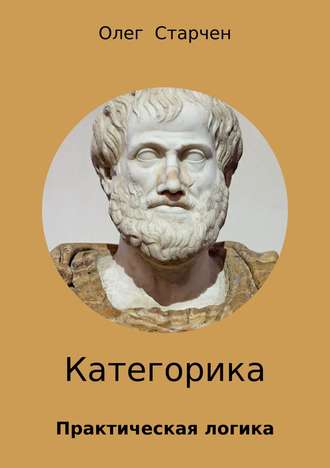
Олег Старчен
Категорика
Categories of reason (or categories of thinking) differ from other categories that concern not reality in itself, and to reason (thinking) concerning reality, relatively the main categories of reality in relation to the person (these objective categories of reality – advantage, harm, truth, error). The correct actions in relation to the reality are generalized objects proceed from reason, its correct categories.
«Olden» (Starchen) Copyright – Oleg Starchen
Categories of practical reason
This is original interpretation of categories of practical reason. Practical reason is decision-making reason. Any reasonable activity can be classified as follows:
Action:
1) Conservation of benefits
2) Realisation of benefits
3) Cessation of harm
4) Prevention of harm.
Inaction
5) Do not cessation of benefits
6) Do not prevention of benefits
7) Do not conservation of harm
8) Do not realisation of harm.
Conservation and cessation – related to present, the prevention and realisation – to the future. On the past actions of this repetition and recovery benefits, which is similar to the conservation and realisation of benefits. Relatively inactive to the past is not repeated and no recovery of harm, that are similar to the prevention and cessation of harm. Actions is activity that changes the situation. Inactions – are no change to the situation. The benefit – that any satisfying or maximizing life’s needs. Harm – is that which reduce the quality or quantity of life. (Note – the life of another person in any case can not be considered as harm. Kant wrote about this: «we must treat the person as to the purpose of action, not only as a tool, as a instrument») Conservation is to keep the situation as it is. Realisation is change of situation, the transfer of anything of what is possible in reality. Cessation is change of situation, the transfer of actual to invalidation. Prevention is keep the situation, not a transition of possible in reality.


